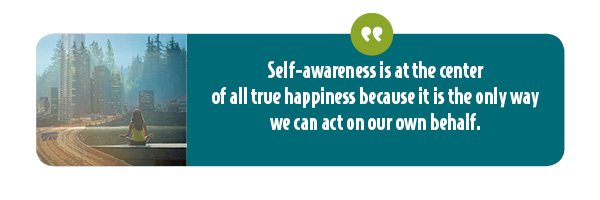To communicate, or to commune using its Greek root, is at the core of all relationships, teams, and communities. Without communication, there is no bridge from each person's private universe to another person.
However, finding our way through the mazes created by our unique experiences, thoughts, emotions, biases (over one hundred!), assumptions, and beliefs is a feat in and of itself. Every day, life presents us with a daily puzzle: to understand and connect with ourselves, and then to others.
Estimated reading time: 5 minutes

A Lack of Clarity in Communication
It can often be challenging at any given moment to know what is most important to communicate.
As George Bernard Shaw said so aptly, “The single biggest problem in communication is the illusion that it has taken place.”
Often, we open our mouths too quickly and regret what comes out! Or not saying what we intended to say at all. Or freezing and not speaking up at all.
Why?
Because we make the mistake of speaking BEFORE we are clear on what we want or need to say. Without emotional awareness, we cannot communicate clearly.
Keys to Effective Communication in Relationships
There are many qualities and keys to effective communication. However, all the many methods of communicating successfully, whether in marriage, a family, or in business, distill down this one single element—all our efforts to communicate with one another fall short without the vital essence of clarity as mentioned above.
As I coach couples, they frequently react without first getting in touch with what they are feeling, and equally importantly, what they are needing. Relationships are a lot like adventure parks with varied rides and risks. Before hopping on one, it's crucial that we are prepared to go all the way to the end.
Unfortunately, the honeymoon cycle is so sweet that couples frequently mistake those endorphins for a lasting connection.
Love is a choice—every day!
What many couples both married and unmarried fail to understand is that we must choose our partner daily.
Many marriages fail because they have lost touch with their why: love and commitment. Clarity gives power to love!
Related reading: "From Hazy to Clear: How to Achieve Clarity about Your Life."

The Definition of Clarity
There are different kinds and definitions of clarity so getting on the same page is worthwhile. The type of clarity I’m talking about is at the core of communication success (synergy, connection, ease, and flow), and its lack results in conflict, arguments, miscommunications, and chaos. So, let me define my meaning of clarity.
Clarity is the alignment of our thoughts, feelings, and actions with our highest values and purpose.
Let’s take an example: A married woman I’ll call Sally came to me thinking that she was on the verge of a nervous breakdown. She often cried (alone) without knowing why; she had bouts of anger and was overwhelmed with a fog of confusion and unhappiness.
It was as if she was disconnected from herself.
Fast forward after a few months of coaching and increased self-awareness, a new clarity stepped forward as if a bright sun came out after a long, dark storm.
The noise, angst, and static in Sally’s life was the friction caused by going against her truth, her gut, and her values.
Sally gave herself up every day multiple times a day to please everyone but herself. her overgiving was one of the reasons she and her husband were struggling in their marriage and as parents.
Not anymore!
As she chose herself and her truth more each day, happiness, inner peace and a sense of well-being expanded quickly. It started to spill over to all her relationships, which also blossomed. It was a beautiful thing to behold.
So how does our clarity get blurred?
Causes of Confusion, Inner Conflict, and a Lack of Clarity
There are several causes for lack of clarity or blurred vision:
- Overwhelming emotions, such as fear
- Lack of emotional regulation
- Unresolved pain
- Conflicting emotions
- Going against our True North
- Desires incongruent with our values
- Lack of knowledge or skill
- Learned myths, limiting beliefs and biases formulated through experiences
The more you pay attention to the times you’re acting outside of your values or ignoring the wisdom of your emotions and shift, the happier you become. And even more powerfully: you can choose to be happy.

How many times a day do you choose YOU?
Whether you only get stuck occasionally, or you’re at a stalemate with your life or in an unsatisfying or challenging relationship, below is a 5-step process that will help. No matter what season you’re in, now you’ll be able to sort through your inner confusion or fog and know what and how to clarify and communicate.
Related reading: "If You Want a Successful Marriage, Increase Self-Mastery."
5 Steps for Achieving Clarity in Communication
STEP 1: Center in your heart and just breathe.
Stopping to pause and center is one of the best actions that you can take—no matter what you’re experiencing. And with all the stimulation in our technological age, it’s one we often forget. Whether you feel the need to communicate urgently or you're just having a relaxing conversation with your partner or a friend, you will only effectively communicate if you connect to yourself first.
STEP 2: Check in with yourself: “What am I feeling and why?”
This is an essential step because unless you know what you’re feeling, you will miss out on this vital intel to communicate more authentically. Your feelings will let you know how important the conversation is to you or what is perhaps troubling you that you have not yet gotten in touch with within yourself. Your feelings are your compass!
STEP 3: What is the story or narrative that you are telling yourself about the person or situation?
Many times, there is a story swirling around in our head—or more than one story! Memories are created from the narratives we tell ourselves beginning in childhood. The mind weaves a tapestry of continual storytelling. As Jason Gots says in his article, "Your Storytelling Brain":
"Cognitive science has long recognized narrative as a basic organizing principle of memory. From early childhood, we tell ourselves stories about our actions and experiences. Accuracy is not the main objective – coherence is. [emphasis added] If necessary, our minds will invent things that never happened, people who don't exist, simply to hold the narrative together."
Narratives can be self-limiting when fear or past unpleasant experiences and inaccurate concepts of ourselves fuel our storytelling.
Thoughts are not facts; thoughts are often untrue.
It's imperative to distinguish between what is a story you're telling yourself and what is your truth. Change the story, and you'll shift your emotions. Seek your truth by stilling the mind.
STEP 4: What core value is driving you?
For instance, you are upset with your wife or husband because they didn’t do what they agreed to do. A possible value that may be driving your emotional upset might be dependability, being a person of your word. You may view doing what you say as a way of showing love, so if they don’t do what they promised, it can be made to mean that they don’t care.
Another example: your co-worker makes a sarcastic remark about you, and you feel hurt and avoid them. A possible value that magnifies the hurt of this remark could be your value of kindness or humility. Get in touch with your values, and then take action that aligns you with what’s most important to you before communicating.
STEP 5: Ask yourself, ‘What is the best action(s) to shift my energy for effective communication?” Or “How would my best self respond?”
Most people cemented in place (or stuck in their life or relationship) because they are NOT acting on what they already know to be true for themselves.
Action is the best remedy for feeling stuck.
Asking one of these questions above will give far better answers because you are building a bridge to your truer self or a future self. When we act from the vision of our finest self, our answers (and actions) are much more likely to be positive and impactful. They will most likely be in our and others’ best interest.
Final Thoughts
Clarity is just behind the clouds blocking the sun of your inner truth. Knowledge is useful and vital; however, TAKING ACTION moves us closer to our goals and a better life. Clarity comes from YOU.
Clarity arrives at your doorstep the minute you choose YOU.
Communicate with clarity by listening to yourself. Only then will you eliminate the most grievous of errors in communication: a lack of clarity.
Related reading: "The Stop, Drop, and Roll of Successful Communication"
If you’d like individualized support to lift the confusion and fog from your life or bring more authentic and effective communication to your company, contact us today.









